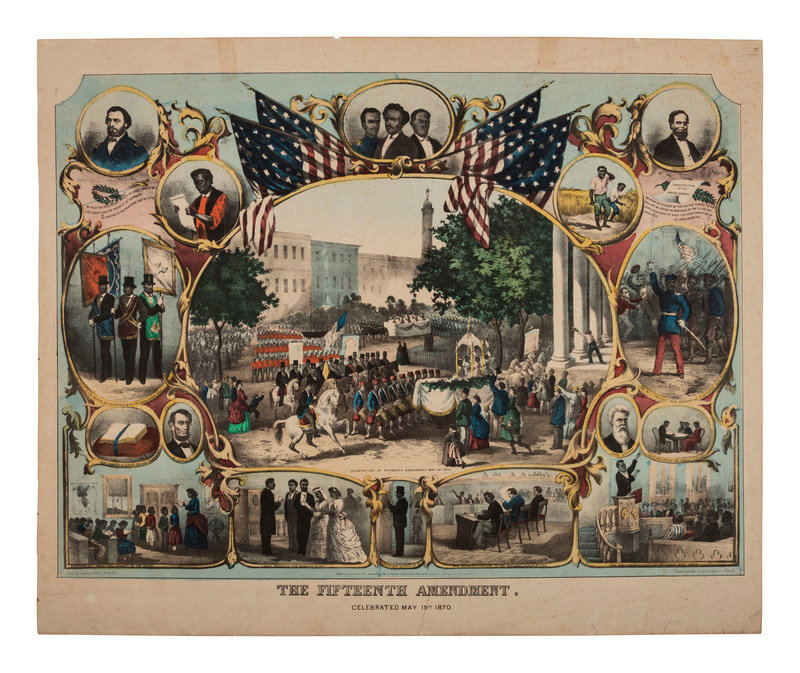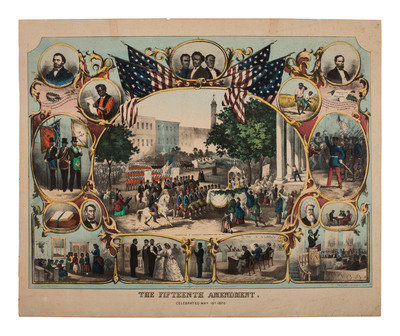[AFRICAN AMERICANA -RECONSTRUCTION]. BEARD, James C., artist. The Fifteenth Amendment. Celebrated May 19th, 1870. New York: Thomas Kelly, 1870.
Sale 1192 - American Historical Ephemera & Photography
Lots 1-294
Jun 15, 2023
10:00AM ET
Lots 295-567
Jun 16, 2023
10:00AM ET
Live / Cincinnati
Own a similar item?
Estimate
$2,000 -
3,000
Price Realized
$2,835
Sold prices are inclusive of Buyer’s Premium
Lot Description
[AFRICAN AMERICANA -RECONSTRUCTION]. BEARD, James C., artist. The Fifteenth Amendment. Celebrated May 19th, 1870. New York: Thomas Kelly, 1870.
27 x 22 in. lithograph marking the enactment of the 15th amendment on 30 March 1870 (toning, spotting and areas of soiling throughout, some chipping and short tears to edges, adhesive repairs to some tears on verso incl. 1 1/2 in. tear at bottom which extends through the title). The central panel depicts the grand 19 May celebratory parade in Baltimore, comprised of Zouave drummers, men on horseback, ranks of troops, and horse-drawn parade floats. Vignettes around the central panel feature bust portraits of significant figures, including Abraham Lincoln, Ulysses S. Grant, Martin Robinson Delany, Frederick Douglass, Hiram Rhoades Revels, Schuyler Colfax, and John Brown. Additional vignettes surround the central panel, representing African American personalities and events that contributed to the enactment of the 15th amendment, including scenes with religious, political, military, and familial content.
Reconstruction mandated Black suffrage in the former Confederacy. The 14th amendment granted citizenship to all persons born in the United States. As such, it must have been presumed that northern states would allow its now-free Black citizenry to vote. In the election of 1868, however, nearly half of the northern states and all border states denied the right to vote to African Americans. As a result, three different versions of the 15th amendment were drafted addressing the right to vote. After much wrangling, Congress passed the most moderate - that states could not deny the right to vote based on race, color or previous servitude. As ratification stood at 17 for, 4 against, 11 more states were needed to adopt this amendment. Congress ruled that former Confederate states, in order to be re-admitted to the Union, had to accept both the 14th and 15th amendments, and as a result, the amendment passed.
Condition Report
Auction Specialist

